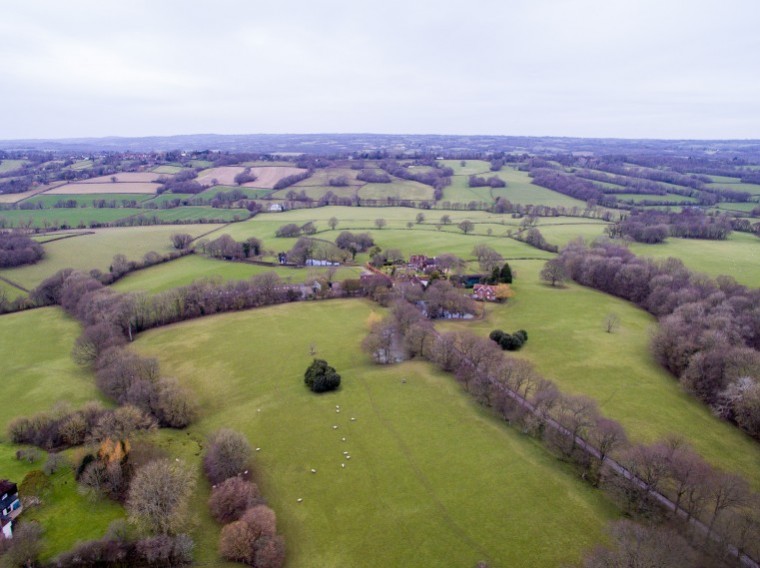As readers may remember from the March edition of South East Farmer, the Brickhouse Estate in Etchingham recently offered for rent a large equipped livestock farm of 500 acres.
Managing agents Batcheller Monkhouse welcomed approximately 60 interested parties over two viewing days, with applicants travelling from across all parts of the UK. Leo Hickish, head of the professional department said: “We were delighted with the level of interest the farm achieved, it shows a real confidence in UK Agriculture despite the uncertainty surrounding Brexit”.
Batcheller Monkhouse received 20 formal tenders, each of a very high quality, presenting the agents with an extremely difficult decision. The farm was marketed as three separate lots. After a thorough review of the tenders received the tenancy was awarded to a local young farmer taking on the farm as a whole for an initial term of 10 years. Leo Hickish said: “We are pleased to award this tenancy to Ben Foy, a young, energetic and forward-thinking farmer. This tenancy will allow him the opportunity to further establish his farming business and provide a sound base for his future.”
Across the South East, and within the High Weald AONB specifically, it is clear that there is a difficulty for new entrants and young farmers in locating land which provides enough long-term security. All too often young farmers have to rely on a range of short term FBTs, grazing licenses and handshake agreements; often scattered over large distances.
Short-termism in letting land ultimately disadvantages the landlord and the tenant. Both need to take a long-term view to maximise production, implement sustainable farming practices, improve soil structure and benefit from environmental schemes. Even something so simple, but as fundamental as good stock fencing all too often gets forgotten about.
The key is to provide an agreement that allows those farming the land to both invest in improvements and reap the benefits of that investment. In this case the Landlord was prepared to offer a 10 year FBT, giving Ben Foy the incentive to invest in the land. Long term security is also important in accessing bank credit, as financial institutions generally match loan terms to lease duration. Charlotte Pearson-Wood, a partner at Batcheller Monkhouse remarked: “This is a sound estate management strategy. Long term relationships are the best way to achieve positive outcomes for both Landlord and tenant.”
Though a longer term tenancy clearly has its benefits for both parties, it is essential that a comprehensive lease is drawn up with absolute clarity on both sides in regard to their obligations prior to the start of the term. One aspect of this tenancy, which was naturally examined very carefully, was the issue of farm subsidies, with Michael Gove guaranteeing subsidies at the current EU level until the 2022 election. “Thereafter we go into the complete unknown. While some form of support may be kept, it is likely that direct payments will be greatly reduced,” said Leo Hickish. “We therefore looked extremely closely at each tender’s business model and their approach to sustainable farming in the light of potentially reduced income”. Nevertheless, the future is unpredictable and thus the Landlord agreed to include a rent review mechanism to coincide with this period, to ensure the tenancy remains adaptable to future conditions.
While Brexit presents a threat to some farming businesses it also presents great opportunities for young farmers looking to establish themselves and expand their business’. Although it is rare for a farm of this size to come onto the market, Leo’s team are working with several other farmers and landlords reviewing future strategy and predict that more such opportunities will come forward over the next twelve months. Tenancies are only one option, in other cases contract farming and share farming schemes can work extremely well.
Leo Hickish concludes: “What was so encouraging about the Brickhouse Estate tender was the strength in depth of the applications. We could have let this farm five times over to strong, dynamic candidates, all showing a realistic and progressing attitude on how to make a return from a traditional grassland farm. We are launching another similar opportunity, a 500-acre mixed farm in Kent.”




